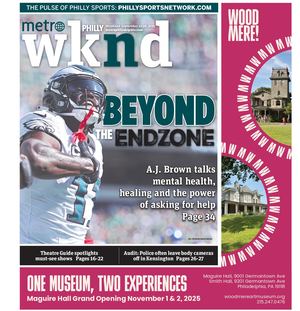 Filmmaker Yoruba Richen descends into the gay debate among African Americans in “The New Black.”
Filmmaker Yoruba Richen descends into the gay debate among African Americans in “The New Black.”
Credit: The Philadelphia Cinema Alliance
“The New Black” is director Yoruba Richen’s documentary that shows how the African American community is divided when it comes to the issue of homosexuality in general and same-sex marriage in particular. Richen alternates between the opposing viewpoints,including straight ally Sharon Lettman-Hicks and anti-marriage equality pastor Derek McCoy, letting each express his/her position as their state of Maryland votes on marriage equality.
How did you find the interviewees for this doc?
I started looking into and focusing on is who is trying to bridge the divide between LGBT and the African American community–who was doing the work to undo the damage that was done during Prop 8. I found Sharon, and she was super interesting. She came from a civil rights world, and was a straight person fighting for LGBT equality and counteracting homophobia in the black church. I then looked at the activists working on this issue like Karess, as well as Rev. Delman Coates, the Black minister advocating for it, and pastor Derek McCoy, who was leading the charge against it.
Was there a particular interview or exchange that crystallized your need to make this film?
Sharon’s family barbeque showed the gamut of feelings about this issue. It was funny, poignant, and angry. Also, when I found Tonex, the [gay] Gospel singer, who crystallized what was happening in the black church. I felt they could demonstrate what was going on here.
What are the challenges of tackling such a divisive topic within the African American community? Did you receive any backlash?
I am pretty sheltered in terms of being an out lesbian [in New York City]. I did have people say this is very controversial, and we as a community don’t talk about it. But I also think there was a hunger for it, especially because of the recent, political events unfolding.
You alternate between pro and con positions, letting each side tell their story. What was your narrative strategy?
As an African American [filmmaker] we don’t often get the opportunity to tell our story in complex way. That is part of my desire to tell stories–even things I don’t agree with, or are not my opinion. To understanding the complexity gives it more nuance. It was important to have various viewpoints, while also being clear that I have a point of view.
Did people’s minds change about the topic while you were making the film, or is this going to always be an agree-todisagree issue?
It would be interesting to go back to these folks a year from now and see what the folks voting against it feel about it now. I think it’s too early to say. It’s generational. Will people change? Or will their views die out, like racism?

























